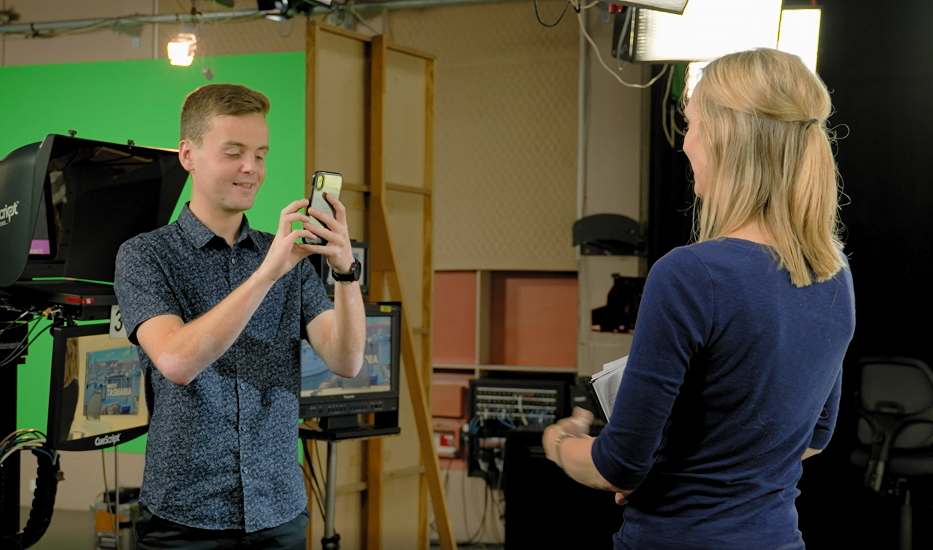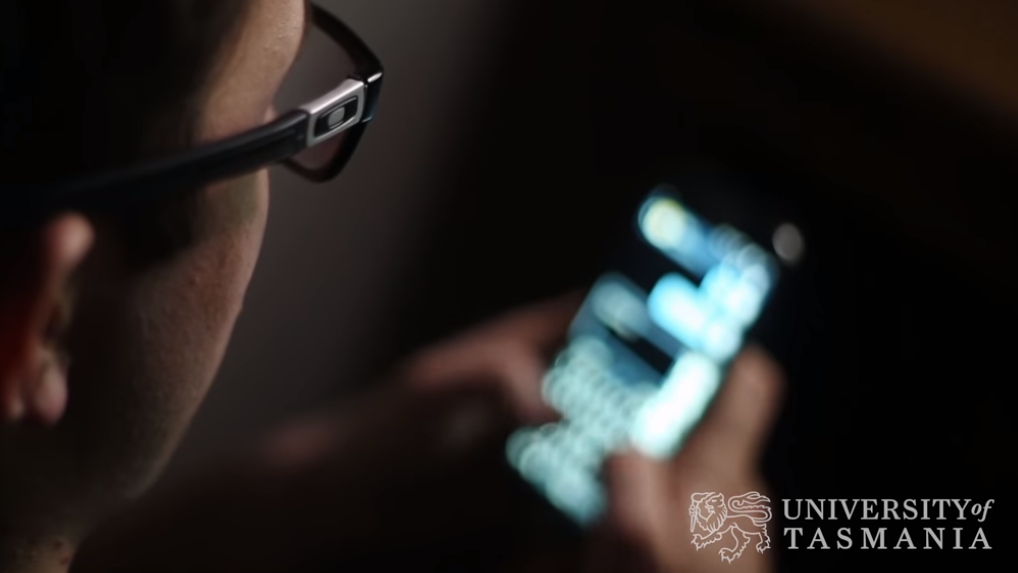Media and Communication
Media student taking part in an internship at Falls Festival, Marion Bay.
Why study Media and Communication?
Studying Media at the University of Tasmania gives you access to a range of exciting and still emerging careers in film, television, journalism, radio, marketing and advertising, strategic communications, media research and events management.
Supervised by academics and expert technical staff, you will leave with a portfolio of work to take to industry, and the confidence that comes from completing internships in local, national and overseas settings.
With a strong reputation in Media research, we offer a variety of postgraduate research courses that will develop your advanced research knowledge and skills. You will leave with a portfolio of work to take to industry, and the confidence that comes from completing internships in local, national and overseas settings.
Career Options
Our graduates work in diverse career fields that value media literacy and industry knowledge. These include advertising and marketing, corporate communications and public relations, online news and news media, business and management, environmental media and advocacy, film and television, radio, foreign affairs, law and criminal justice, local, state and federal government, not-for-profit and charities, publishing, research, teaching, and tourism.
- Advertising creative director
- Art director and copywriter
- Broadcaster, presenter
- Campaign manager
- Documentary maker/producer
- Editor
- Events manager
- Film production crew
- Media and market researcher
- Media adviser
- News producer
- Public relations consultant
- Publishing
- Photojournalism
- Policy adviser and analyst
- Science communicator
- Screen and media entrepreneur
- Social media content creator
- Sports writer and presenter
- Teacher
- Travel writer or editor
Monte Bovill
Media and Communications Graduate
Monte Bovill was halfway through studying his Bachelor of Media and Communications when he found himself caught in the middle of Hobart’s 2018 flash floods. It was a day that saw the city record more than 100 millimetres of rain in a single day in May. Monte’s tweets were picked up by numerous media outlets and quickly became an important part of the narrative.
Study Options
In the Media and Communication program you are able to study units across Screen, News and Journalism, Strategic Communications, and Media Practice and Analysis.
Through the Media production units and work-integrated learning opportunities with industry, you will graduate with a portfolio a real-world projects to take to employers.
The Media program is unique in that you are able to focus your studies directly within the Media School, or complete any complementary major university wide to diversify your skills in a particular area of interest.
Interested in studying with us? Explore our courses
Research
Our research in Media focuses on media and consumption, crime, transnational media flows and the environment. This research complements our extensive experience as journalists, political correspondents, broadcasters and in strategic and corporate communications.
Our work is published in leading journals and by top-tier academic presses. We have access to an international network of researchers, and members of our team have received prestigious research grants and fellowships.
We welcome proposals from qualified applicants to undertake research degrees in PhDs and Masters, and are pleased to discuss research proposals that cross disciplines, including law, science, business, economics, journalism, geography and environmental studies, education and health sciences.
Featured Project
Helping young audiences to be critical of the content they consume
The ABC-UTAS Media Literacy Project will expand scholarly knowledge about media literacy and inform the production of more segments and features by the ABC which teach audience how to be critical of content they consume and build their knowledge and skills about how to participate. The focus will be on particularly on students aged 11 -16.


